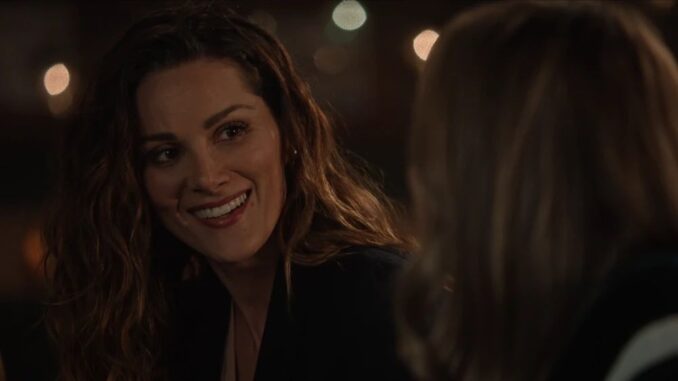
The final embers of Station 19 glow, casting long shadows across the memories of its cast and crew. As they gather, perhaps for the last time, the air is thick with reminiscence, not just of a show, but of the lives it touched, both on-screen and off. Amidst the myriad storylines, one narrative thread consistently emerges as a beacon, a north star for many: the complex, often tumultuous, yet ultimately transcendent love story of Maya Bishop and Carina DeLuca.
As the actors reflect, a quiet pride settles over their faces, a collective acknowledgement of having been part of something truly significant. For many, Maya and Carina – affectionately dubbed "Marina" by a fervent fanbase – weren't just characters. They were a statement, a revolution in representation unfolding week after week. "It wasn't just a love story," one might imagine Jaina Lee Ortiz, who played Andy Herrera, musing, "it was a living, breathing testament to what queer love can be on television: messy, beautiful, real."
The initial spark between the driven, rule-bound Maya (Danielle Savre) and the compassionate, free-spirited Carina (Stefania Spampinato) was electric. It defied stereotypes from the outset. Here were two strong, accomplished women, one a bisexual athlete and fire captain, the other a lesbian OB/GYN and immigrant. Their connection wasn’t sensationalized for shock value but developed organically, with all the awkwardness, vulnerability, and undeniable chemistry of real human connection. The cast understood, even then, that this was different. They weren't just playing roles; they were crafting a narrative that many had longed to see.
"We knew we had a responsibility," Danielle Savre might recall, the weight of years of fan letters and social media messages palpable in her voice. "To show the nuances, the struggles, the joy, the mundane moments that make up any relationship, but especially one that hasn't always been given a fair shake on screen." And they delivered. Maya and Carina navigated the treacherous waters of trauma, career ambition clashing with personal need, the heartbreak of infertility, and the profound journey of building a family through adoption. Their love wasn't a fairytale; it was a testament to resilience, open communication, and the fierce dedication required to build a life with another person.
Stefania Spampinato, embodying Carina's empathetic spirit, might add, "What I truly value is that their love was never the problem. Their issues came from external pressures, from their pasts, from life. Their love was always the solution, the anchor." This subtle yet profound distinction resonated deeply with viewers. It normalized queer love, portraying it as inherently valid and strong, rather than something inherently problematic or tragic. The casting directors, the writers, and indeed the entire ensemble embraced this ethos, understanding that their work was not just entertainment but affirmation.
The impact reverberated far beyond the soundstage. The digital echo chamber of social media buzzed with a fervent, protective love for "Marina." Fan art, fan fiction, and passionate discussions flooded online platforms. Viewers, many of whom had never seen themselves truly reflected on mainstream television, found solace, hope, and inspiration in Maya and Carina's journey. Letters poured in, raw with emotion, thanking the actors for giving them characters who mirrored their own lives, their own loves, their own struggles and triumphs. The cast, witnessing this outpouring, felt the immense weight and privilege of their roles.
"When you realize that your work is genuinely making a difference in someone's life, helping them feel seen, helping them to accept themselves, that's an incredible feeling," might be the sentiment expressed by Boris Kodjoe, who played Robert Sullivan, watching his co-stars in interviews. The Maya and Carina storyline transcended mere plot points; it became a symbol of progress, a quiet revolution that nudged the needle forward for LGBTQ+ representation on network television.
As the curtain falls on Station 19, the cast looks back not just on a job completed, but on a legacy forged. The love story of Maya and Carina stands as a testament to the power of authentic storytelling, of portraying queer love with the same depth, complexity, and undeniable beauty afforded to any other. It taught audiences that love is love, that family is chosen, and that even amidst the chaos of a Seattle firehouse, a quiet, fierce, and enduring love can bloom, providing a beacon for countless hearts seeking to find their own. And for the cast, it was an honor, a privilege, and a profound joy to bring that story to life.